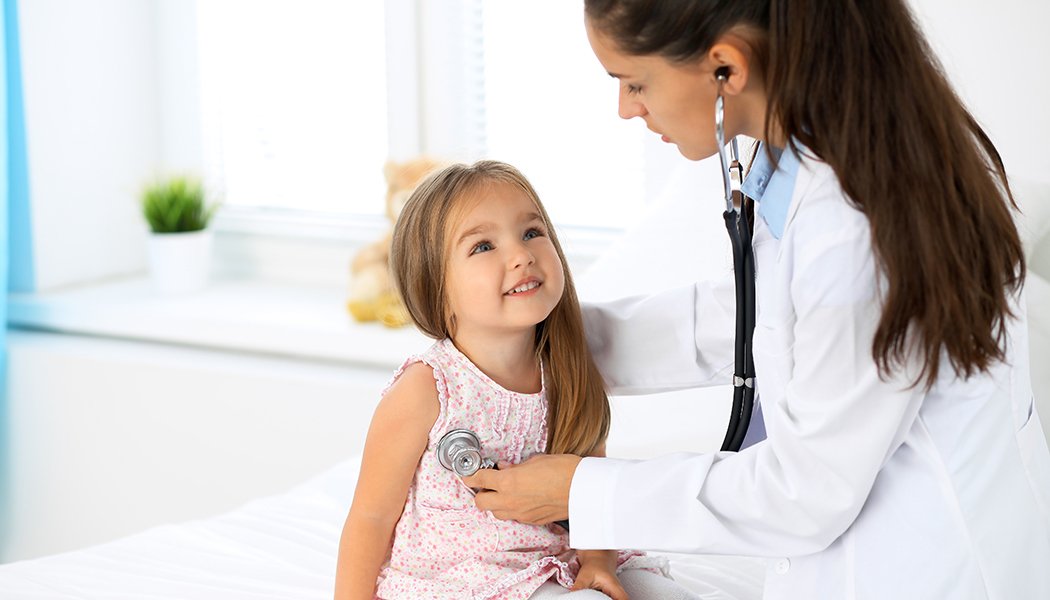
Children’s Health
-
Immunisation is a simple, safe and effective way to protect your child against certain diseases. The risks from having these diseases are much greater than the risk of any minor side effects from immunisation.
Your child needs 5 visits to the surgery to be fully vaccinated and the immunisations are administered by one of our 3 practice nurses.
In Ireland, all the recommended immunisations for your child are free.
Visit 1:
Age 2 months: 3 injections, 1 oral drops 6 in 1, MenB, PCV, RotavirusVisit 2:
Age 4 months: 2 injections, 1 oral drops 6 in 1, MenB, RotavirusVisit 3:
Age 6 months: 3 injections 6 in 1, PCV, MenCVisit 4:
Age 12 months: 2 injections MMR, MenBVisit 5:
Age 13 months: 2 injections Hib/Men C, PCV
Some frequently asked questions:What causes infection?
Infections are caused by germs entering the body:• through cuts,
• when we breathe in, or
• when we swallow.The germs then cause diseases such as meningitis (inflammation of the lining around the brain), pneumonia (a lung infection) or septicaemia (blood poisoning).
What is a contagious disease?
This is a disease that spreads from one person to another usually through coughs and sneezes. Some people ‘carry’ the germs in their body but are not sick themselves. For example, 1 in 10 of us carry meningococcal germs but only 1 in 10,000 gets sick with meningitis or septicaemia. Other examples of contagious diseases include measles, whooping cough, tuberculosis (TB), diphtheria and polio.How does my child’s body fight infection?
When germs enter your child’s body, your child’s immune system makes ‘antibodies’ to the germs.Antibodies do two things:
1. They attack and destroy the germs. However, it takes time for the body to make enough antibodies. Sometimes the germs may damage your child’s body before the antibodies can destroy them.2. They stay in your child’s body to protect them against future infections. If the same germs try to infect your child again, the antibodies will destroy them before they have a chance to make your child sick. This way of dealing with germs is called ‘natural immunity’. It is why most people get diseases like measles or chickenpox only once, even though they might be exposed to them many times. The problem with getting natural immunity from germs is that your child has to get sick before they develop immunity. In fact, some germs could make your child very sick or even kill them before their body could produce enough antibodies to destroy the germs. This is why we give vaccines to protect your child against these germs.
How do vaccines work?
When your child is given a vaccine, their body responds by making antibodies, in the same way as if they had caught the disease but without getting sick. The antibodies that your child’s body makes then stay in their body to protect them against the actual disease.How long do vaccines take to work?
It usually takes a few weeks for vaccines to work, so your child will not be protected immediately.Why does my child need more than one dose of a vaccine?
Most vaccines need to be given several times to build up long lasting protection. For example, a child who gets only one or two doses of the whooping cough vaccine is only partly protected against whooping cough and may still catch the disease. This is why it is so important that your child completes all five visits to the GP (doctor) and gets all their immunisations.When your child reaches school age, they will get more doses of some vaccines to give them even better long-term protection. These are called booster doses.
What common reactions can my child get after being vaccinated?
At 2 and 4 months:
Fever is common after MenB vaccine.
Soreness, swelling and redness in the area where injection was given
Mild diarrhoea after the rotavirus oral vaccineAt 6, 12 and 13 months:
Soreness, swelling and redness in the area where injection was given
Fever (over 39 C) or your child can feel hotter than normal
Headache or irritability
Remember: If your child is very unwell after getting a vaccine, they may be sick for some other reason. Talk to your doctor about this.For more detailed information on the immunisation programme, please read the HSE’s immunisation guide:
https://www.hse.ie/eng/health/immunisation/pubinfo/pcischedule/engyourchildsimm.pdf
